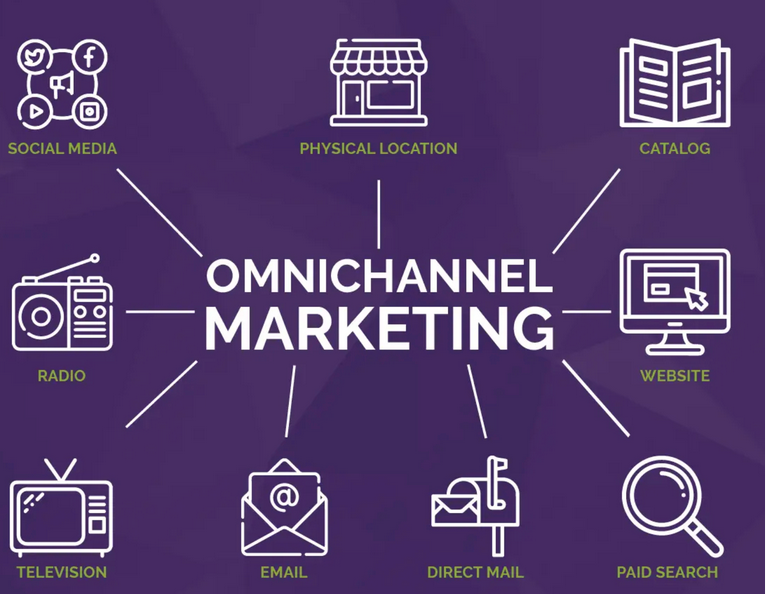
Ready to get more customers calling?
Take FREE Local SEO Course
Available now in English
Omnichannel Marketing - is not just a marketing strategy, it’s a unique approach that provides a consistent and integrated customer experience across multiple marketing channels and touchpoints with the brand. The goal of omnichannel is to create a seamless and consistent interaction with the customer, whether using a mobile device, visiting a website, a desktop shop, or interacting via social media.

How does Omnichannel Marketing work?
An omnichannel marketing strategy integrates different communication and sales channels to provide customers with a consistent and seamless experience regardless of how and where they choose to interact with a brand. Here are some practical applications of omnichannel marketing to help businesses increase online shopper engagement, improve the customer retention and increase sales:
- Consistency between online and offline channels - a customer can browse products in an online shop on their smartphone, add them to their basket, and then complete the purchase in a stationary shop. Omnichannel systems allow the status of the shopping cart to be saved and synchronised between devices.
- Personalisation of the customer experience - based on purchase and browsing history, customers receive personalised product recommendations on the website and in marketing emails.
- Inventory management and logistics - the customer buys a product online and chooses to collect it from a nearby store where it is in stock. Integrated stock management systems that update product availability in real-time, enabling efficient stock manage
- Omnichannel customer service - a customer starts a conversation with customer service via online chat and then continues the conversation over
- Multichannel marketing - a customer receives an email with a promotion, scans a QR code from their phone during a desktop sale, and gets an additional discount at checkout. Integration of marketing campaigns via email, mobile apps, and physical shop activities to increase customer engagement and support a consistent shopping experience.
Benefits of Omnichannel Marketing
Omnichannel approach brings significant benefits for both companies and their customers:
- Increased customer satisfaction - by giving customers the option to interact with a brand across platforms consistently and seamlessly, customer satisfaction is significantly increased. Customers value the ability to choose how and when to purchase or contact a company, resulting in a better shopping experience.
- Increased customer loyalty - consistent and positive experiences across channels lead to increased customer loyalty. Customers satisfied with their interactions with a brand are more likely to purchase again and recommend the company to others, which is critical to long-term success.
- Increased revenue - omnichannel marketing enables you to reach customers more effectively and personalise your offering, which can lead to increased sales. Companies that effectively implement omnichannel strategies often report higher average order value and purchase frequency.
- Better understanding of customers - by consolidating information from various channels, businesses can gain a more comprehensive insight into customer preferences and actions. Evaluating this data delivers crucial insights that can enhance product lines, tailor marketing messages, and improve inventory management.
- Increased operational efficiency - omnichannel marketing allows better use of company resources by integrating online and offline operations. Coordinated inventory, logistics, and customer service management contribute to cost reduction and incre
- Strengthened competitiveness - in the age of digitalisation and rising customer expectations, companies that successfully implement omnichannel strategies stand out in the market.
Implementing an Omnichannel strategy
Implementing omnichannel marketing comes with some challenges:
-
Data integration: Requires sophisticated IT systems to collect, analyse and use data from different channels.
-
Consistency across channels: Maintaining a consistent image and message across all platforms is crucial, but often difficult to achieve.
-
Staff training: Staff need to be adequately trained to support customers effectively at each touchpoint.
Summary
Omnichannel Marketing is a comprehensive strategy that, despite its challenges, offers significant benefits by building more profound and more valuable relationships with customers. It gives a competitive benefit by creating a consistent and rewarding customer experience at every stage of the customer journey.
![What is Omnichannel - Definition [Marketing Dictionary]](/assets/img/dictionary-background.webp)
